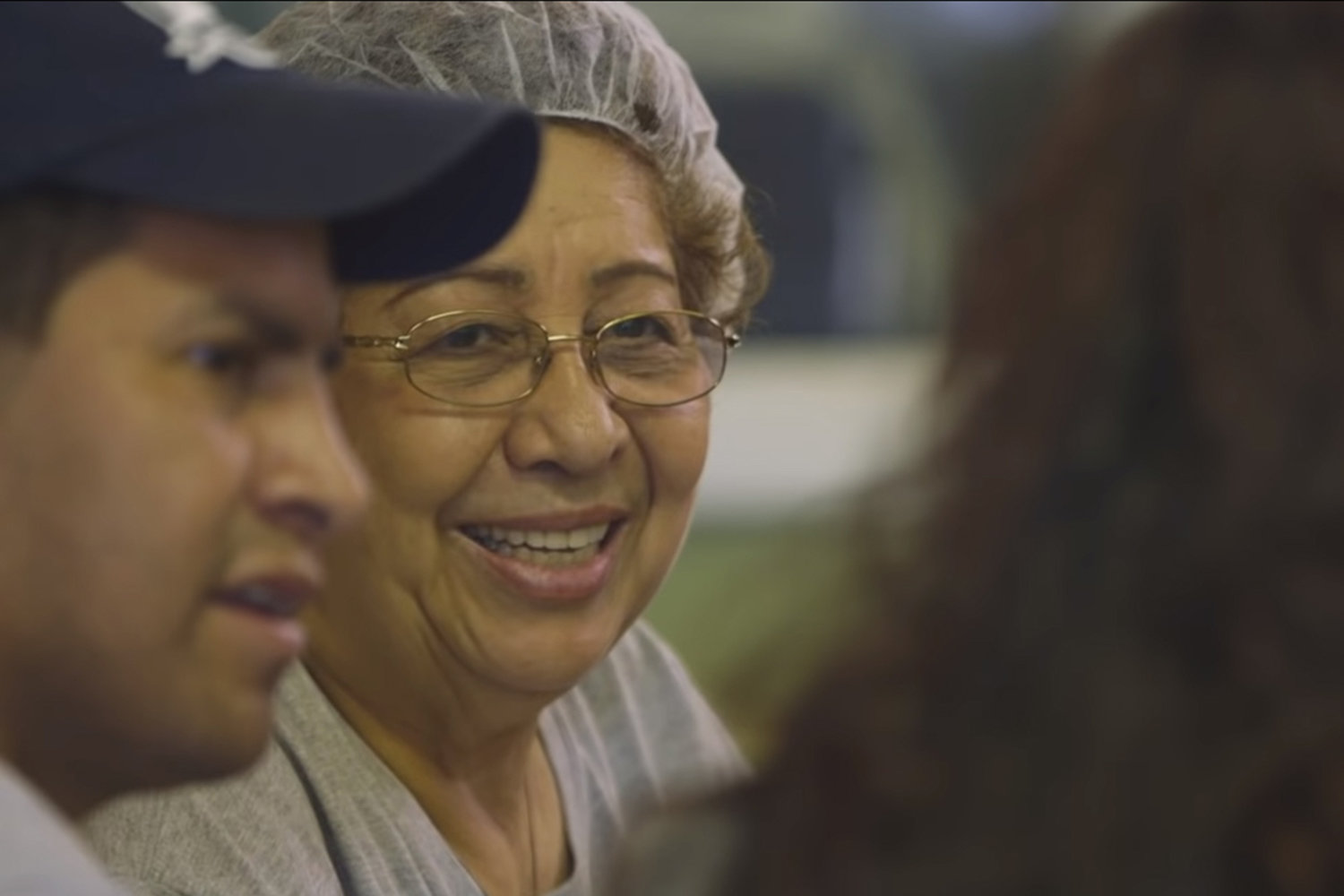CCHD collection be taken up Nov. 23-24
Catholic Campaign for Human Development helps break the cycle of poverty through local, national grants
For nearly 50 years, the Catholic Campaign for Human Development (CCHD) has been the official domestic anti-poverty program of the U.S. Catholic bishops.
Raising public awareness about poverty and its causes and working to break the cycle of poverty in the United States, the annual collection will be taken up in parishes throughout the diocese the weekend of Nov. 23-24.
More than 38 million people live in poverty in the U.S. This collection helps community leaders who work to expand access to affordable housing, health care, and education.
The collection also supports the development of worker-owned businesses, and advocates for changes to structures that keep people in poverty
“The situation of the poor obliges us not to keep our distance from the body of the Lord, who suffers in them,” Pope Francis said in his statement for this year’s commemoration of the World Day of the Poor. “Instead, we are called to touch His flesh and to be personally committed in offering a service that is an authentic form of evangelization.”
Near and far away
Bishop David P. Talley of Memphis, chairman of the CCHD Subcommittee of the U.S. Conference of Catholic Bishops’ Committee on Domestic Justice and Human Development, said the CCHD draws people together in working to address the root causes of poverty.
By taking part, “we uphold the dignity of those who live in poverty and empower them through dialogue and solidarity,” he said.
This national collection is the primary source of funding for CCHD’s community and economic development grants, as well as its education programs aimed at raising awareness of poverty and fostering hope in communities across the nation.
Twenty-five percent of the money stays in the diocese to help with local efforts to disrupt the cycle of poverty.
With money from last year’s collection, Bishop W. Shawn McKnight approved grants to eligible organizations that combat poverty on two distinct fronts.
•A $10,000 grant to Missourians for Alternatives to the Death Penalty’s (MADP) will help pay for community and faith forums throughout the state, led by two men who have spent time on death row before being exonerated.
It will also help pay for MADP’s spiritual advisor and pen pal programs as well as event coordination expenses for the organization’s racial justice reconciliation and remembrance programs.
MADP attempts to make Missourians aware of the cost, inequalities, arbitrariness and immorality of the death penalty.
The focus is the entire state, with particular attention to the Jefferson City central region.
The bishop’s CCHD advisory committee believes this grant supports the organization’s mission of seeking institutional change in the social, political and economic arenas where there is a disproportionate effect on poor and low-income people.
•A $10,000 grant to Sedalia-based Open Door Service Center Inc.’s grant will help expand a Christian faith-based soup kitchen operation.
Operating Monday through Friday, the organization serves approximately 1,200 meals per month.
Open Door plans to use the money to help pay for an assistant kitchen manager/cook to lead the expansion of Open Door’s service to weekends.
The Open Door kitchen began several years ago in a Salvation Army building, and then operated in the basement of St. Patrick Church in Sedalia.
A certified commercial kitchen on West Pettis Street began in 2018.
Open Door is an affiliate of The Food Bank of Central and Northeast Missouri.
Patrons live below the federal poverty level.
After careful consideration
Bishop McKnight approved the grants upon the recommendation of a diocesan CCHD advisory committee.
Committee members include: Father Francis Doyle, pastor of Sacred Heart parish in Columbia; retired Deacon Earl Horsefield, a member of Holy Cross parish in Cuba; Deacon William Seifert of Immaculate Conception parish in Jefferson City; Susan McAdams, a member of Immaculate Conception parish in Jefferson City; and Lesli Alvarenga, a member of St. Peter parish in Marshall.
Grant requests were accepted in January through February of this year.
Both organizations that are receiving local funding affirmed that they have no organizational conflict with any Catholic moral or social teaching relating to the sanctity of life, and affirm that any money given them will only be used by their respective organizations.
For more information
Facts about poverty and success stories from groups supported through the annual CCHD collection may be found by visiting: www.povertyusa.org.
CCHD’s annual report provides a presentation of the use of collection funds and the scope of its reach and impact, along with the CCHD newsletter “Helping People Help Themselves.”







